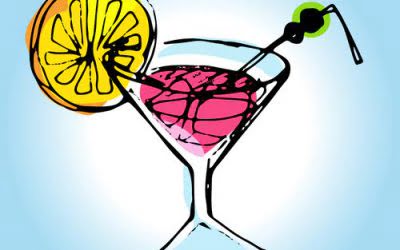The Four Stages of Alcoholism: Pre, Early, Middle, & Late
Content
This can contribute to harmful drinking patterns that may gradually shift into alcoholism down the line. The pre alcoholic stage, early alcoholic stage, and middle alcoholic stage could be considered steps on the path to Alcohol Use Disorder. During these stages many people are able to attend to their relationships and responsibilities, but those who are on this path will become increasingly unable to live happy and fulfilling lives. 95,000 people die a year of Alcohol related deaths in the United States. This statistic underscores the reality that our drinking habits should be of concern to all of us. It is important that we take an honest and unbiased look at our behaviors and symptoms so that we can assess our need for assistance as we seek to live healthy and meaningful lives.
- More broadly speaking, I believe that recovering individuals need to learn to feel comfortable with being uncomfortable.
- It is important to understand that every journey begins somewhere in the early stage of alcoholism.
- Expectancy theory has shown that when people expect to have fun, they usually do, and when they expect that something will not be fun, it usually isn’t .
- Once it takes hold, it can be hard to shake loose—without the right help.
- I find it helpful to encourage clients to compare their current behavior to behavior during past relapses and see if their self-care is worsening or improving.
It’s important to keep up with a healthier lifestyle and check for signs of relapse to prevent it. Also, it can help to face and work on the underlying problems that may contribute to relapse, such as mental https://ecosoberhouse.com/ health concerns, negative thoughts and feelings, unhealthy relationships, and lifestyle. Also referred to as “The Wall,” this stage is when you may face cravings again and go back to previous behaviors.
Gridiron to Guardian: Student Athlete Inspires Change at His Alma Mater
During the middle stage, a person’s problem with alcohol consumption becomes more evident especially for those around them. Drinking every now and then isn’t a cause for concern with many adults. However, when drinking alcohol becomes routine and out of control, people may fall down the wrong path of addiction. The purpose of this rule is to remind individuals not to resist or sabotage change by insisting that they do recovery their way. A simple test of whether a person is bending the rules is if they look for loopholes in recovery.

Effective addiction treatment providers will have addiction counselors, but they should also have mental health services as many people with alcoholism have co-occurring mental health conditions. In this middle phase, friends and family may feel it’s appropriate to stage an intervention. Signs that a person’s drinking behavior has progressed from early to moderate can include drinking at inappropriate times or a day or inappropriate situations. They may be neglecting family, friends, work, and childcare responsibilities. They may be showing signs of physical health or increased mental health problems. Lack of control is a notable sign that someone’s drinking has gotten out of hand.
Severe or Late-Stage Alcoholism
Some people who are non-confrontational or otherwise fear upsetting you may not say anything. Your bolder and more confident friends and family members will likely come forward and ask you to evaluate your relationship with alcohol. At this stage, you might notice that you have an increased tolerance for alcohol. It takes more to give you the euphoric, liberated feeling of being drunk. This amount of alcohol may be more than your body can actually handle, leading to blackouts or expanses of lost time where your brain was too inebriated to record long term memory.
Medical Reviewers confirm the content is thorough and accurate, reflecting the latest evidence-based research. Content is reviewed before publication and upon substantial updates. As alcoholism progresses, the cells in the body become more and more resistant to the short-term effects of alcohol. As a person continues drinking excessively, the cells will continue to adapt. Eventually, the presence of alcohol becomes the norm for the body, and the long-term damage continues. When alcohol enters the bloodstream, one of the central impacts isslowing the rate of communication between nerve cells. The rate of communication returns to its typical levels once alcohol leaves the body.
Stage 3: Maintaining Abstinence
Emotional relapse is the first phase of the three phases of relapse. During this stage, the person is not actively thinking about using drugs or alcohol. However, their emotions and behaviors may be setting them up for a relapse down the road.
- You can replace risk factors with protective factors, things that prevent you from going through the stages of alcoholism.
- If a person drinks frequently or more heavily, the nerve cells in the brain adapt byreducing the number of places they can receive these messages.
- Early into the study of alcohol abuse, a theory was proposed that described the decline into full-blown alcoholism.
- Since the stage of maintaining sobriety is self managed, it’s important to keep yourself accountable.
- So if someone finds themselves drinking more than they plan to, or their drinking habits affecting their relationships, it is most likely that they are on the on-set of being an alcoholic.
No matter what stage of alcoholism you find yourself in, there is hope for recovery, but it will likely take a professional alcohol treatment program to get you there. Treatment will start with medical detox, which is medically supervised and involves taking medications that will help alleviate the intensity of withdrawal symptoms like tremors, nausea and cravings. You have probably lost your ability to control your drinking even though you may want to, and you likely hide the extent of your drinking from others. The withdrawal symptoms can be excruciating, and the blackouts become more frequent in the middle stages of alcoholism. You may still be under the impression that you don’t really have a problem, you just drink too much sometimes. Our liver filters out harmful substances, cleans our blood, stores energy and aids in digestion.
Take The First Step to a New Life
Clients are encouraged to understand the concept of a recovery circle. This is a group of people that includes family, doctors, counselors, self-help groups, and sponsors. Individuals are encouraged to be completely honest within alcoholic recovery stages their recovery circle. As clients feel more comfortable, they may choose to expand the size of their circle. They are caused by insufficient coping skills and/or inadequate planning, which are issues that can be fixed .
Adjunctive Ketamine With Relapse Prevention–Based Psychological Therapy in the Treatment of Alcohol Use Disorder – Am J Psychiatry
Adjunctive Ketamine With Relapse Prevention–Based Psychological Therapy in the Treatment of Alcohol Use Disorder.
Posted: Tue, 11 Jan 2022 08:00:00 GMT [source]
To prevent relapse, it is crucial to recognize that you are in emotional relapse and to immediately change your behavior. If you’re feeling anxious, begin implementing deep breathing techniques. When one has been in emotional relapse for a period of time, they begin to feel uncomfortable or not at ease in their own skin. Unfortunately, due to fear of judgement or failure, many do not share how they are feeling when this occurs.
Alcohol Withdrawal Syndrome can be more painful and more complicated than withdrawal from any other drug due to the way alcohol impacts the brain. If this behavior becomes a norm rather than an occasional occurrence, your friends and family might realize that your drinking is becoming a problem.
- They start to think that recovery is hard work and addiction was fun.
- Knowledge surrounding the causes of alcoholism was still scarce until the mid-1900s.
- New interests and sober-minded relationships are developed, and fulfillment within society increases.
- Alcoholism can have three stages, but the goal should always be to prevent them.
- This stage is also known as the “Honeymoon” stage because it is characterized by more optimism and overconfidence.
As you talk through these issues with your loved one, remember that it is important that you be both honest and kind. Supporting a loved one with Alcohol Use Disorder can be a stressful experience. Moving Mountains takes a whole-person approach to recovery by offering a continuum of care, clinically proven treatments, and holistic healing. We work closely with you to identify your unique needs, facilitate individualized treatments, and help you establish a foundation upon which your recovery–and the rest of your life–can grow. Our compassionate, friendly staff is available 24-hours a day to take your call and help you begin your recovery journey. Alcohol affects the central nervous system in an individual’s brain. When alcohol is abused on a frequent and long-term basis, it is known to cause the development of various neurological disorders.
Posted in: Sober living
Leave a Comment (0) →